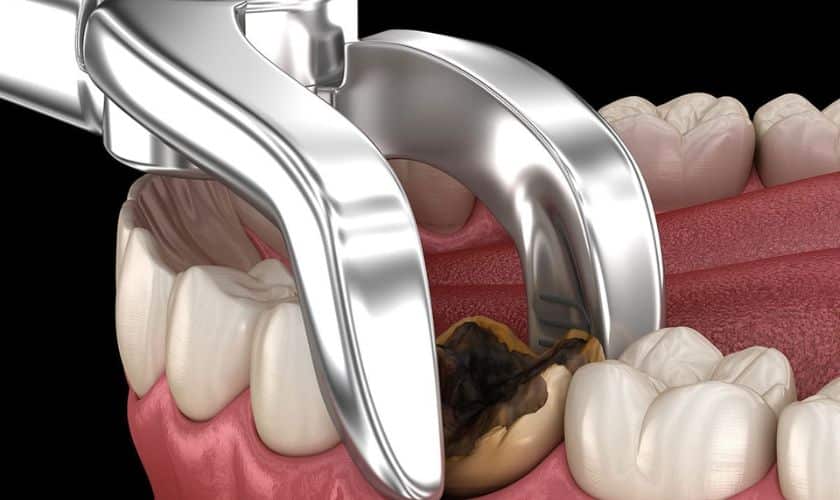Experienced Dentists
Experienced Dentists
Blog Article
Discovering Different Sedation Options for a Comfy Wisdom Teeth Removal Experience

Neighborhood Anesthesia
Local anesthetic is a generally utilized approach for numbing details locations of the mouth throughout knowledge teeth extraction treatments. By administering a regional anesthetic, such as lidocaine, a dental expert can make certain that the individual remains comfortable and pain-free throughout the extraction process. Neighborhood anesthesia jobs by momentarily blocking the nerves in the mouth, stopping them from sending out discomfort signals to the mind. This allows the dentist to do the extraction without creating any type of discomfort to the client.
Among the main advantages of regional anesthesia is its targeted numbing result, which suggests that just the certain location being dealt with is influenced. This local method reduces the threat of systemic negative effects and permits a quicker recuperation post-procedure. wisdom teeth removal aspendale. Furthermore, neighborhood anesthesia is thought about to be a regular and secure practice in dental care, with marginal threats involved when administered by an experienced specialist
Nitrous Oxide

Additionally, laughing gas is understood for its quick recuperation time. When the mask is removed, the results of the gas wear away rapidly, enabling clients to resume their regular tasks without sticking around sedative impacts. This makes nitrous oxide a convenient choice for those who need to drive themselves home after the oral consultation. Additionally, nitrous oxide is appropriate for patients of all ages, making it a flexible sedation option for knowledge teeth removals and other oral treatments.
Dental Sedation

One of the primary benefits of oral sedation is its ease of management. Unlike intravenous sedation, oral sedation does not require needles or injections, making it an extra comfortable choice for people with a concern of needles. Furthermore, dental sedation is taken into consideration secure and effective when carried out by skilled oral specialists. However, it is crucial for individuals to follow pre-operative directions offered by their dentist, such as avoiding from consuming or consuming prior to the procedure to make certain the sedative drug functions as intended.
IV Sedation
Administered intravenously by experienced medical experts, IV sedation is a powerful technique used to cause a regulated state of deep relaxation and unfamiliarity during oral procedures. Unlike oral sedation, which can be unpredictable in its effects, IV sedation enables exact control over the degree of sedation, making it a perfect option for intricate treatments like knowledge teeth extractions.
During IV sedation, a sedative drug is delivered directly into the bloodstream via a blood vessel, allowing it to work rapidly and successfully. This method makes sure that the client remains comfy and uninformed of the treatment while still preserving vital functions such as breathing and heart rate.
Among the main advantages of IV sedation is its capability to supply a deeper level of sedation compared to other techniques, read this article making it particularly appropriate for people with high degrees of anxiousness or those undertaking comprehensive dental job. In addition, the effects of IV sedation commonly subside gradually after the treatment, minimizing the probability of grogginess or sticking around negative effects. On the whole, IV sedation provides a reliable and safe choice for ensuring a comfy and worry-free experience throughout knowledge teeth removal.
General Anesthesia
Having talked about the benefits of IV sedation for knowledge teeth extraction, the usage of basic anesthetic gives an alternative option for people needing a much deeper degree of unconsciousness during dental procedures. General anesthesia generates a regulated state of unconsciousness, making sure the client really feels no discomfort or discomfort throughout the removal process. This technique is particularly useful for individuals with serious oral anxiousness, facility surgical demands, or those going through multiple extractions simultaneously.
General anesthetic is administered by a trained anesthesiologist who very closely monitors the client's crucial indicators throughout the procedure. It involves the usage of intravenous medicines or breathed in gases to induce a state of unfamiliarity. While under basic anesthesia, the individual will not understand the surgery, experience any pain, or have any type of recollection of the treatment afterward.
Although basic anesthetic is risk-free when provided by certified professionals, it brings a slightly higher risk compared to various other sedation options. wisdom teeth removal aspendale. Individuals taking into consideration general anesthesia for knowledge teeth extraction must go over the prospective risks and benefits with their dentist or oral cosmetic surgeon to make an educated choice based on their private demands and case history
Conclusion
In conclusion, different sedation options are readily available to ensure a comfy wisdom teeth extraction experience. Local anesthetic is commonly made use of for numbing the specific location, while nitrous oxide gives leisure and discomfort relief. Oral sedation and IV sedation deal deeper levels of relaxation, depending on the individual's needs. General anesthesia can be made use of for extra complex cases. It is crucial to speak with your dental expert or dental surgeon to determine the most appropriate sedation option for your procedure.
Nitrous oxide is appropriate for individuals of all ages, making it a versatile sedation option for click now wisdom teeth removals and various other dental treatments.
Unlike intravenous sedation, dental sedation does not call for shots or needles, making it a more comfy choice for people with a fear of needles.One of the main benefits of IV sedation is its capability to offer a deeper level of sedation compared to other approaches, making it particularly suitable for individuals with high levels of anxiousness or those undertaking considerable oral job.Having actually gone over the benefits of IV sedation for wisdom teeth removal, the application of basic anesthesia provides an alternate choice additional info for clients needing a deeper level of unfamiliarity during dental procedures. Oral sedation and IV sedation deal much deeper degrees of relaxation, depending on the person's needs.
Report this page